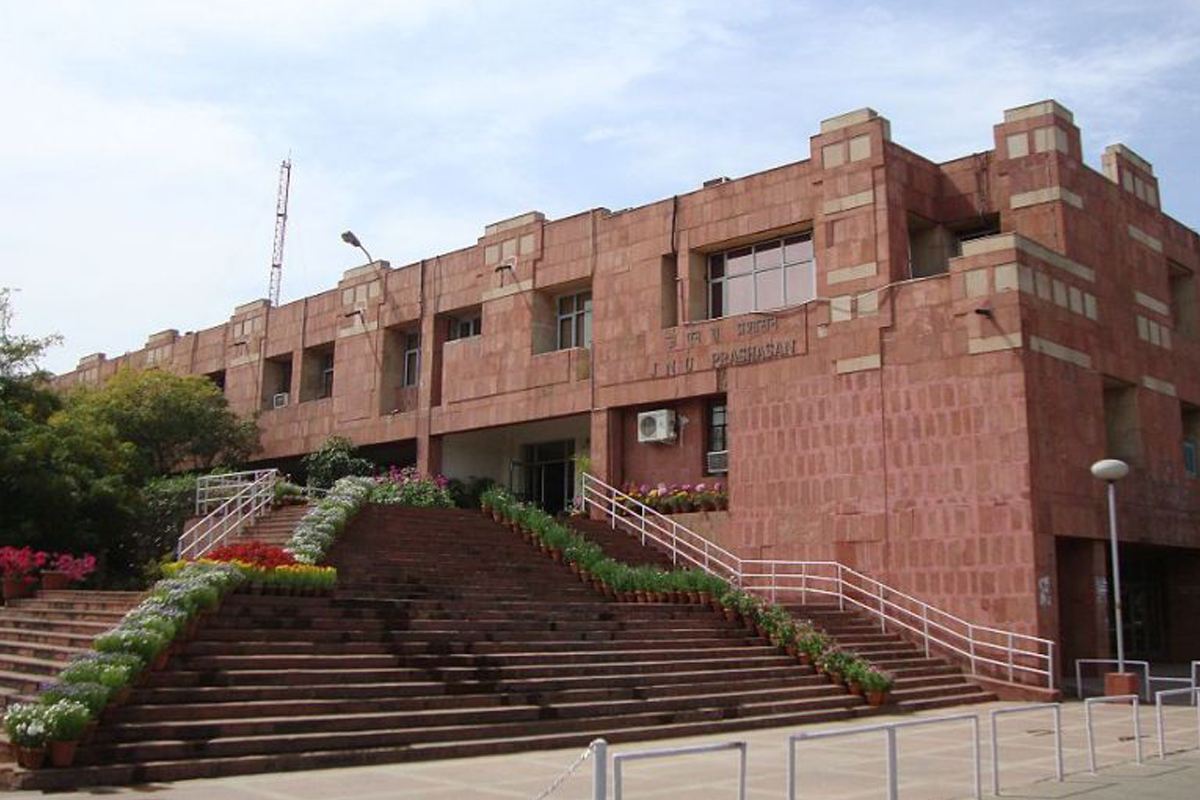BJP leaders discuss strategy for Ladakh LS seat
BJP’s Ladakh candidate Tashi Gyalson, Phunchok Stanzin, President Ladakh BJP, Tashi Gyaltsan Kachu, District President and Gorjay Angchuk, election committee incharge were also present in the meeting.
Offensive slogans were allegedly raised and the controversy assumed a political colour. In the left versus right binary, the ‘nationalists’ took on the ‘anti-nationals’ in a debate fuelled by a strident media, that has for the most part lost touch with objectivity, and the social media troll army.

JNU administration block. (Photo: Wikimedia Commons)
The heavy-handed action against protesting students of Jawaharlal Nehru University by Delhi Police has raised several questions. The men and women in khaki, who just a few days ago laid siege to the police headquarters to protest an assault on their colleagues by lawyers in the Capital, unleashed a lathicharge on students marching to Parliament to voice their dissent about a decision by the university administration that would virtually upend their academic future.
The steep hike in hostel fees will make JNU the costliest central university, belying its stated aim of being a higher educational institution that encourages inclusivity, so that students of varied social and economic strata can avail of a liberal education.
That the police action had the tacit sanction of the Central government goes without saying; Delhi Police comes directly under the Union Home Ministry. Though the police denied any assault on the students, visuals say otherwise. The university has been in the cross-hairs of the present BJP-led dispensation at the Centre ever since the sedition row of 2016 when a section of students wanted to hold a demonstration against the execution of Parliament attack accused Afzal Guru and were denied permission.
Advertisement
Offensive slogans were allegedly raised and the controversy assumed a political colour. In the left versus right binary, the ‘nationalists’ took on the ‘anti-nationals’ in a debate fuelled by a strident media, that has for the most part lost touch with objectivity, and the social media troll army.
The university’s wellknown academic ambience that encourages dissent and questioning of authority has taken a beating. Vice-Chancellor Jagadesh Kumar, who has had an eventful tenure since he assumed office in early 2016, has seldom engaged with the students and in this instance, too, has not thought it fit to start a dialogue with the protesters.
Monday’s violence resulted in the HRD ministry setting up a high-powered committee to interact with JNU’s student leaders. One meeting has already been held and more discussions are in the offing. Though the current agitation has resulted in a partial rollback of the hostel manual pertaining to dress code, curfew timings and fee hike for BPL students, it remains to be seen what turn affairs on the campus will take. The university is one of the last bastions of the Left. Attempts by the RSS student wing Akhil Bharatiya Vidyarthi Parishad to storm the ‘red citadel’ have been unsuccessful so far.
Despite the JNU students union’s recent run-ins with the powers that be, the clear divide in the university’s teaching community and prolonged spells of student unrest, it is still rated among India’s top universities. A shining light in the country’s general milieu of academic mediocrity, but will a university named after the country’s first prime minister survive in the ‘new India’ of the times?
Advertisement